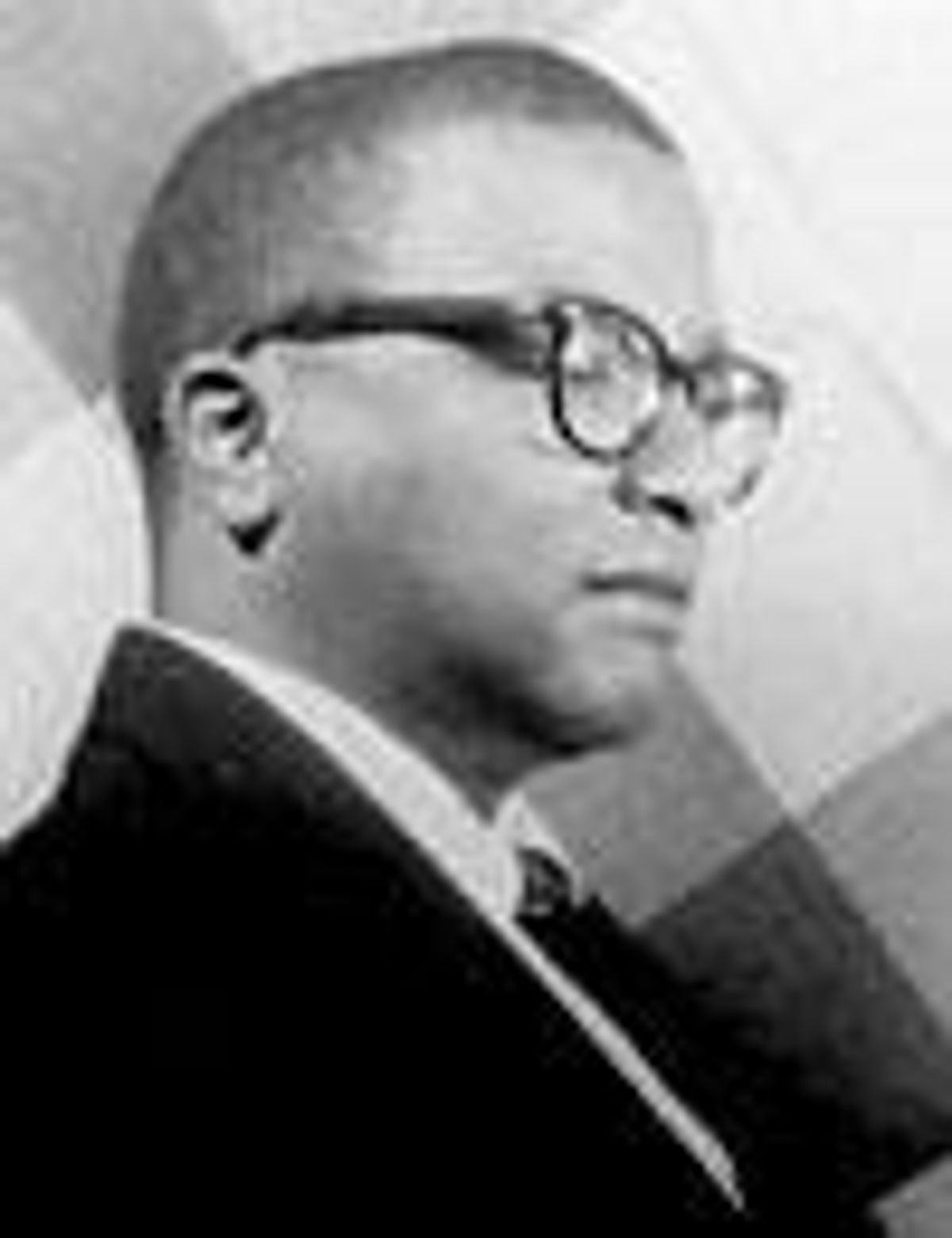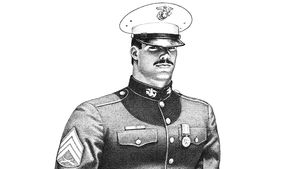The new
documentary Billy Strayhorn: Lush Life tells the
story of a great love between two men. But it
isn't a romance, and only the titular
protagonist is gay.
Billy Strayhorn
wrote or cowrote several of the 20th century's
greatest jazz and pop songs: "Satin
Doll," "Lotus Blossom,"
"Something to Live For." He penned his
masterpiece, "Lush Life," recorded by everyone
from Nat King Cole to Rickie Lee Jones, at the age of
16.
These gems have
become Strayhorn's legacy. But in his
lifetime--which began in Dayton, Ohio, in 1915
and ended in a New York hospital 52 years
later--the composer, arranger, and pianist was best
known as Duke Ellington's right hand. As
Lush Life illuminates, the two enjoyed a
complex relationship, which at times hindered Strayhorn from
becoming a star in his own right but also permitted
him freedom he might otherwise never have enjoyed.
A small man with
big appetites (he was rarely seen without a drink and a
cigarette) and owlish glasses, Strayhorn boasted skills his
employer lacked, including classical training. He
imbued his work with a bittersweet, unconventional
harmonic sensibility and rhythmic twists that hinted
at the innovations of Debussy and Ravel. "Lush
Life" is a quintessential saloon song, right up
there with "One for My Baby," but it
originally proved so daunting to Frank Sinatra that he
stormed out of a recording session.
Ellington
complemented his protege with showmanship and
savvy. The bandleader's fame and popularity
generated opportunities for Strayhorn to accomplish
great feats even under duress. After a 1940 ASCAP ban forced
all of Ellington's original tunes off the radio,
Strayhorn and Duke's son, Mercer, had only the
duration of a railroad journey to write all new
material for the band. Strayhorn cooked up (and almost
discarded) "Take the 'A'
Train," which quickly became Ellington's
signature song.
But until well
after his death, Strayhorn often failed to receive
accurate billing or credit for his contributions. His name
was originally left off "Satin Doll,"
and it was Ellington alone who got the Grammy for the
score of Otto Preminger's movie Anatomy of a
Murder, even though Duke spent most of the filming
in his hotel while Strayhorn haunted the set and
composed underscore.
Because he
remained hidden in plain sight, Strayhorn could conduct his
personal life, including sharing a brownstone with his
partner for many years, under less scrutiny. Not that
this completely shielded him from discrimination in
the hurly-burly, heterosexual world of jazz. He often
had to write out individual charts of his pieces for every
band member, as Ellington's official copyist
refused to do so for him. Likewise, the
bandleader's homophobic publicist made sure Duke got
the lion's share of the credit--and
press--for their later collaborations.
Lush Life also follows Strayhorn's adventures
outside of his boss's immediate orbit:
traveling to Paris to write music for an ill-fated
Orson Welles stage production of Faust starring
Eartha Kitt (who makes a brief cameo here); becoming
involved in civil rights with his platonic love and
secondary muse, Lena Horne; cooking beans and ham
hocks in beer at house parties.
Yet inevitably,
Ellington and Strayhorn are always drawn back together.
Why? Perhaps because the latter was driven to create music
of innovation and beauty, and working for a famous
colleague who appreciated his gifts afforded him the
fastest avenue. Had he been born white or worked in a
different idiom or another era, Strayhorn might have enjoyed
more status and recognition. Or maybe not. As it was,
as biographer David Hajdu observes, the public
probably would have resisted the notion of an
African-American musical genius on par with Mahler or
Stravinsky--let alone a gay one.
Lush Life raises many questions, many more than its
talking heads can answer. Whatever it was that drove
Strayhorn, his medium was music. Alas, on the screen,
the performances created specifically for this
project--shot in a brightly lit, anonymous
loft--feel a bit like classroom exercises. But
on the Blue Note Records companion soundtrack CD,
featuring 15 new recordings by pianist Hank Jones, singer
Dianne Reeves, and others, the elegance and
sophistication shine through. Of particular note is
"My Flame Burns Blue," a gripping new
interpretation of Strayhorn's final
composition, "Blood Count," courtesy of Elvis
Costello.
To label
Strayhorn unsung is a misnomer. Forty years after his death,
his repertoire sounds as rich and emotional as ever.
But Billy Strayhorn: Lush Life does what its
subject opted not to in his lifetime. It reveals more
about the man behind the music and, more important, just how
much music he was truly behind.
Billy Strayhorn: Lush Life debuts Tuesday, February
6, at 10 p.m. as part of the PBS series Independent
Lens (check local listings).


















































































